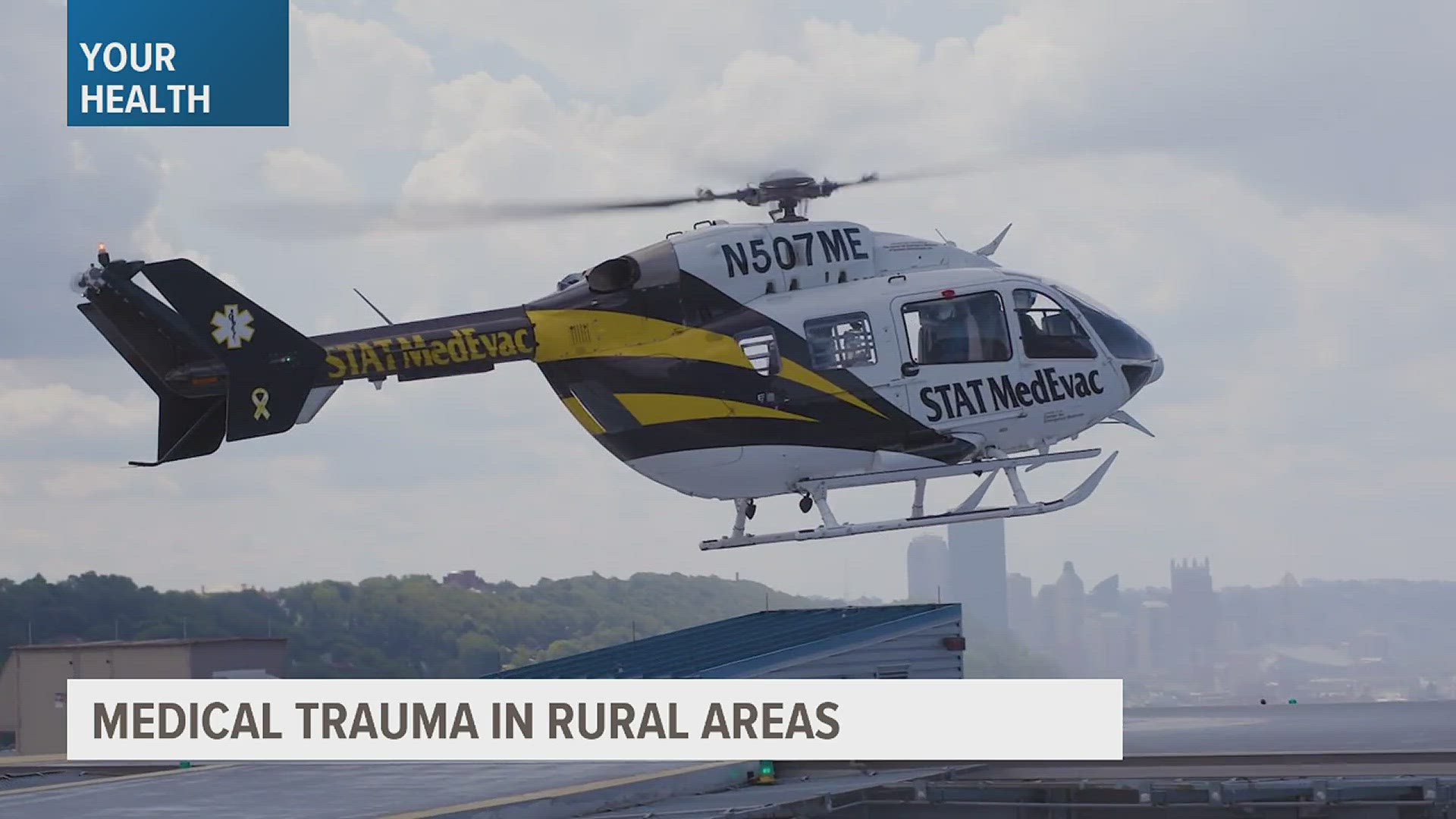PITTSBURGH — For the millions of Americans who live in rural areas, there are benefits to being away from the hustle and bustle of the city – it’s quiet, it’s clean, and you may have some space between you and your neighbors.
One drawback? Almost 25% of all Americans live more than an hour away from a trauma center by helicopter. Now, a new study may help emergency crews make critical transport decisions.
A car crash, bike accident, a sports collision – serious injuries that may need specialized medical attention. For emergency medical crews in rural areas, it’s a tough call.
“One is to drive them to their local community hospital that's not a trauma center. The other is to call for a medical helicopter to transport to a trauma center,” explained emergency medicine doctor at UPMC, Joshua Brown, MD, MSc, FACS.
Dr. Brown and his colleagues studied the outcomes of 37,000 severely injured patients transported to ERs by helicopter or ambulance. The research shows short stops at local hospitals first, hurt some patients, since trauma surgeons lost valuable time.
Dr. Brown added, “In trauma, we always talk about this golden hour from the time of injury to getting to the trauma center. The patients brought directly to the trauma center had almost a twofold increase in their survival as a result of getting to that trauma center earlier.”
The findings support medical crews in rural areas calling for a helicopter if patients have abnormal vital signs or an altered mental state, spinal cord injuries, or severe chest trauma with a possible collapsed lung.
Dr. Brown expressed, “Being able to give them this set of criteria can really help them make a huge difference in the patient's outcomes.”
Dr. Brown is working with the American College of Surgeons to develop triage guidelines for emergency responders. He and his colleagues are also working with EMS physician groups across the country to get the information out to first responders.
Contributors to this news report include Cyndy McGrath, Producer; Kirk Manson, Videographer; Roque Correa, Editor.
Watch more news, weather and sports on News 8's YouTube channel

